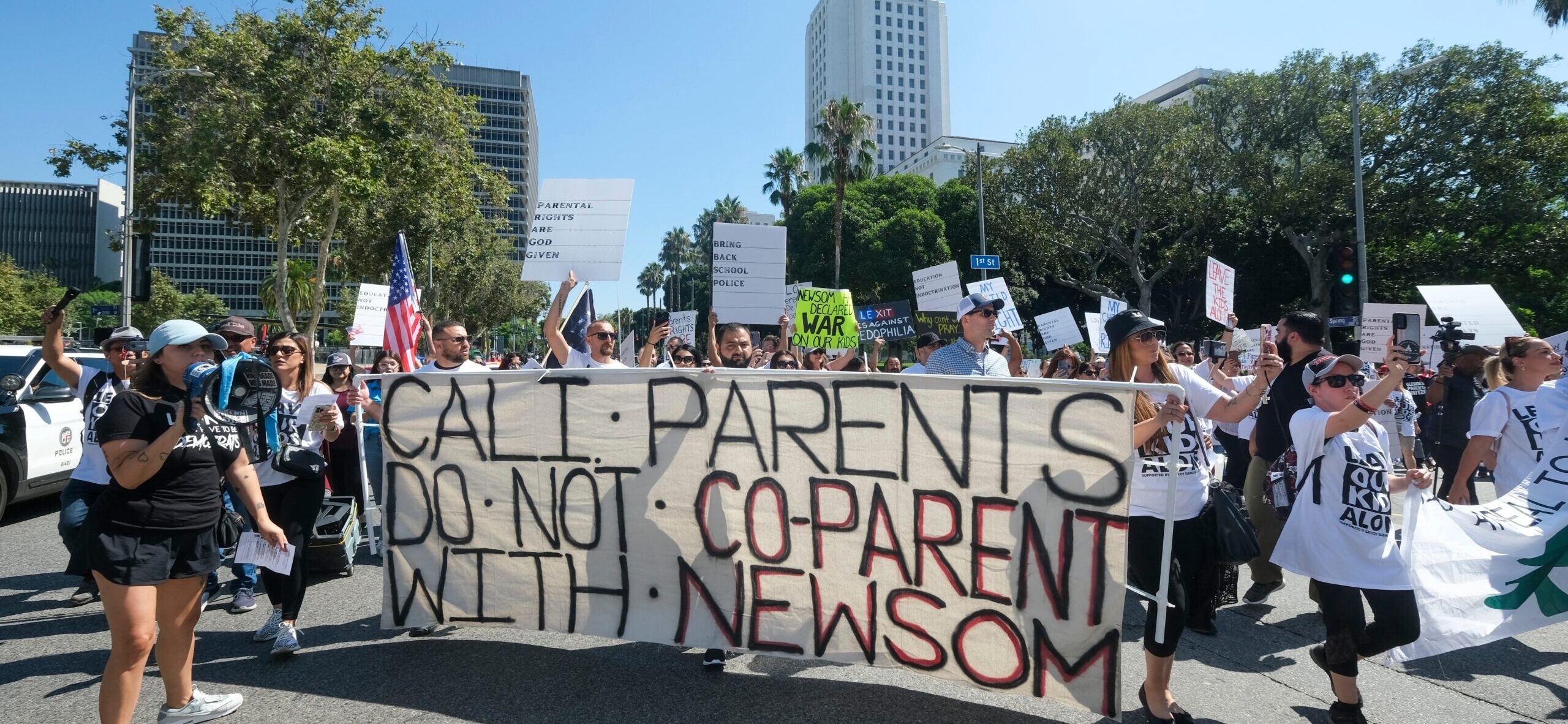Chinese Government Sponsorship of Rape of Uyghur Women – The Legacy of China’s One-Child Policy

In 1979, China launched its much-criticized one-child policy, which forced couples to have only one child. Due to the cultural preference for males, families often chose to abort their daughters. This has resulted in a skewed demographic, which the government of China is trying to alleviate, in part, by forcing women of the Uyghur minority to marry Han men.
Though China recently reversed its one-child policy in 2015 and now even incentivizes couples to have at least two children, the damage to its population might not be rectified for decades. Chinese men currently outnumber women by 34 million, and more women are rejecting marriage as a way to avoid being “beholden to a man and his family.” As a result, China has a massive sex-ratio problem, and most men may spend their entire lives unable to marry.
Due to the cultural pressure on men to find a wife, some resort to more dubious options like human trafficking or bride trafficking. A report compiled by the University of Albany stated, “China is both a source and destination country for human trafficking, and the trafficking occurs mainly in the context of large-scale migration within the country, which is increasing.” From the Western borders of conflict-riddled Myanmar (Burma) to North Korean escapees, some Chinese families pay anywhere from $3,000 to $13,000 for a foreign bride who is often treated as little more than a sexual slave.
It seems that now China itself has gotten into the forced marriage game by advertising marriages to Uyghur women and girls to attract men into the Xinjiang or East Turkistan region of China.
“This is government-sponsored mass rape,” Rushan Abbas said in an interview with The Daily Citizen. She is head of the Campaign for Uyghurs, which is a U.S. based organization that is advocating for Uyghurs as the Chinese government continues its growing campaign of genocide.
Since 2014, the Chinese government has been focused on suppressing, detaining and indoctrinating the Uyghur people, an ethnic and religious minority that practices Islam. The detention of Uyghurs in concentration camps has gained worldwide attention, and many in the Western world have rightly labeled the actions of the Chinese government as genocide.
But it’s the actions against women and young girls that feels particularly egregious.
As part of its program to eliminate the Uyghur culture and suppress the Muslim religion, the authorities send in Han Chinese, the country’s ethnic and cultural majority, into homes of families across the Xinjiang region.
Known as the “Pair Up and Become Family” campaign, Han Chinese members of the Communist Party go and live with Uyghur families for a period of time. It’s portrayed as a way to develop deeper cultural ties and familial bonds, but, in reality, it’s a way to invasively spy on the families and report if the Uyghurs have failed to adopt Chinese practices, like drinking alcohol and eating pork, which are both forbidden in Islam. According to one estimate, about a million Han men and women have involved in these surveillance efforts.
The women in the home remain especially vulnerable in this situation.
“The Uyghur women are vulnerable to sexual abuse,” Abbas said. “Their husbands are sent to prisons or forced labor facilities or concentration camps.”
As men make up the majority of those detained in the government-controlled concentration camps, many homes lack a protective male presence, which some of the Han Chinese “relatives” use to sexually exploit the wives, daughters and others within the home.
According to one Uyghur woman who was able to share her story with North American researchers, more Uyghurs are now marrying their Han Chinese “relatives” or “comrades.” When pressed on the matter, she said, “People in the older generation don’t accept (these marriages with ‘comrades’), it has increased a lot. I don’t know if they are (doing it willingly) or not. I’m not in touch very much with those that have gone through with it. I think they must be doing it willingly. It seems like their families wouldn’t force them to do this. There are so many of them (that I personally know).”
This woman also reports that the women who reject these relationships may be forced to “study,” which is a common euphemism for the concentration camps, or possibly something even worse.
In addition to this blatant violation of the sanctity of the home, the young Uyghur women are also being essentially sold to Chinese men for marriage.
“While the Uyghur men are taken away to concentration camps, the Uyghur women are forced to marry Han men,” Abbas said. “The girls nor their families, can reject a forced marriage, for fear of repercussions. If they say no, then they will be viewed as Islamic extremist who didn’t want to marry non-Muslim Chinese. So, they cannot reject a proposal.”
“Just imagine, when a girl cannot choose who she wants to marry or if she cannot reject who she doesn’t want to marry, what is that? That’s rape. Uyghur women are being raped through government’s sponsorship of sham marriage. Han Chinese men are encouraged to come to East Turkistan to marry Uyghur girls with government gratification like jobs, housing and money.”
Dr. Darren Byler, an anthropologist, has written extensively on the current situation and climate surrounding interethnic marriage in East Turkistan. In an article entitled, “Uyghur Love in a Time of Interethnic Marriage,” he shared a story about how one Uyghur young woman begged her boyfriend to return to the region to marry her in order to avoid a forced marriage to a Han Chinese man.
He wrote, “The young woman, who I’ll call Adila, told him that she would break up with him if he didn’t come back within the next several months to marry her. She said her parents were forcing her to do this. They thought that the risk of her being chosen for marriage by a Han young man was too high. They needed to find a Uyghur husband for her now, in order to protect her.”
Historically, interethnic marriages have trended at less than 1 %, but that has changed in recent years as “since 2018 there has been a notable rise in articles promoting marriage between Han men and Uyghur women.” There is even a guide about “How to win the heart of a Uyghur girl.”
The author of the booklet suggests, “‘coordinating’ between these local work units and social security workers will produce ‘strong backing and support’ that cannot be defeated by ‘religious extremism.’”
There is nothing done without the party and local government support, which makes backing out or turning down an offer to date a Han man nearly impossible.
A report from the Uyghur Bulletin on Twitter shows pictures of a collective “forced interethnic marriage” between Han Chinese men and Uyghur women. The event is also filled with Han cultural traditions, while ignoring those of the Uyghurs.
“So, the Uyghur women are not able to give birth and raise Uyghur children,” Abbas said.
It’s just another way that the Chinese Communist Party is destroying the Uyghurs and their culture.
If Uyghur men are forced into concentration or forced labor camps, this allows those Han men access to a newly available population of “marriageable” women. Not to mention that they can gain access to the family’s finances and land as well, and they don’t have to try to win the women’s affection like they would in most of the rest of the country.
The pressure that young women, both unmarried and married, face in East Turkistan is difficult to imagine. The government is literally locking up as many men as they can, in order to leave the women vulnerable to the pressures and coercion of their “relatives/comrades” living in their home. This practice eliminates the possibility that women can choose their own destiny and allows the Chinese Communist Party to destroy an entire culture in the process.
This is genocide.
Photo from Shutterstock
Visit our Election 2020 page
ABOUT THE AUTHOR
Brittany Raymer serves as a policy analyst at Focus on the Family, researching and writing about abortion, assisted suicide, bioethics and a variety of other issues involving the sanctity of human life and broader social issues. She regularly contributes articles to The Daily Citizen and has written op-eds published in The Christian Post and The Washington Examiner. Previously, Raymer worked at Samaritan’s Purse in several roles involving research, social media and web content management. While there, she also contributed research for congressional testimonies and assisted with the Ebola crisis response. Raymer earned a bachelor of arts in history at Seattle Pacific University and completed a master’s degree in history at Liberty University in Virginia. She lives in Colorado Springs with her beloved Yorkie-Poo, Pippa.




